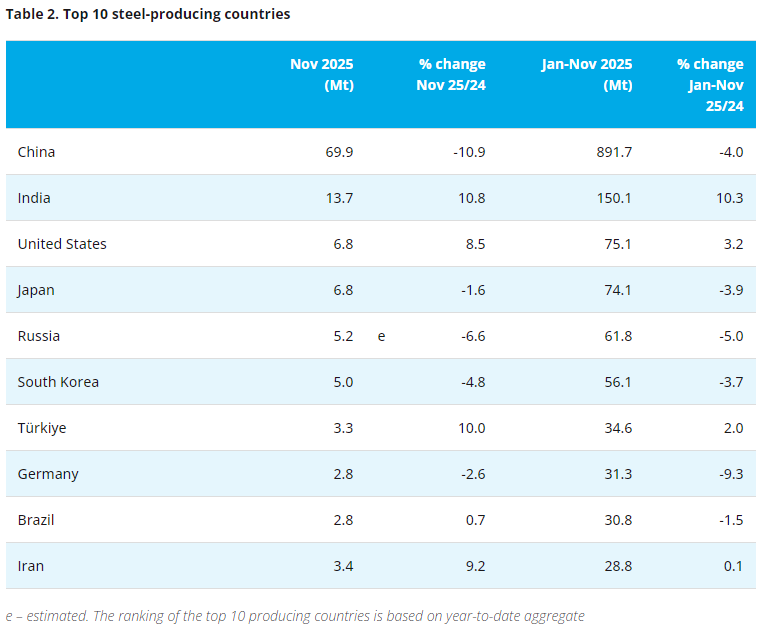[ferro-alloys.com] 245,400 tons was worth 213 million yuan ($34.7 million) on the first day of its operation, according to information sent by the platform to the Global Times Tuesday.
The platform restarted operations Tuesday following its shutdown four years ago, adding to signs that China will further ease its strict restriction on imports of the raw material.
The reopening of the platform came after China on July 1 removed an iron ore import licensing system that had been in place since 2005.
The new platform, located in the coastal city of Rizhao in East China's Shandong Province, was jointly invested by four companies including China Railway Materials Company Limited (CRM), whose iron ore sales amounted to 40 million tons in 2012.
The platform aims to achieve a trading volume of 10 million tons of iron ore in the first year of its operation, worth up to 10 billion yuan.
The platform was originally set up by private traders in 2009, but was shut down by the China Iron & Steel Association before it went into operation due to fears it could increase speculation and disrupt the market.
"The reopening of the private iron ore trading platform is an attempt by market players to diversify trading models, and it helps break the monopoly over the market by a limited number of licensed traders and steel companies," Wang Guoqing, a senior analyst at Beijing Lange Steel Information Research Center, told the Global Times.
The platform restarted operations Tuesday following its shutdown four years ago, adding to signs that China will further ease its strict restriction on imports of the raw material.
The reopening of the platform came after China on July 1 removed an iron ore import licensing system that had been in place since 2005.
The new platform, located in the coastal city of Rizhao in East China's Shandong Province, was jointly invested by four companies including China Railway Materials Company Limited (CRM), whose iron ore sales amounted to 40 million tons in 2012.
The platform aims to achieve a trading volume of 10 million tons of iron ore in the first year of its operation, worth up to 10 billion yuan.
The platform was originally set up by private traders in 2009, but was shut down by the China Iron & Steel Association before it went into operation due to fears it could increase speculation and disrupt the market.
"The reopening of the private iron ore trading platform is an attempt by market players to diversify trading models, and it helps break the monopoly over the market by a limited number of licensed traders and steel companies," Wang Guoqing, a senior analyst at Beijing Lange Steel Information Research Center, told the Global Times.
China, the world's largest iron ore importer and consumer, has since 2005 implemented tight restrictions on imports of raw materials. In 2009, it cut the number of licensed companies to only 105, including 65 steel makers and 40 traders, in order to stabilize prices.
"The reopening of the private trading platform also shows the government intends to ease its restriction on iron ore imports and cut the purchasing costs of domestic steel companies by eliminating the licensed middlemen," Wang said.
"But the challenge is that the Rizhao platform was opened after the official platform started operation last year. It has missed the opportunity of being first of its kind, so it will take longer before it is accepted by traders," Hu Yanping, a senior analyst at industry portal custeel.com, told the Global Times Tuesday.
In early 2012, China launched its first official physical iron ore trading platform, China Beijing International Mining Exchange, in an effort to strengthen its pricing power over a raw material that has long been dominated by giant foreign suppliers.
"The reopening of the private trading platform also shows the government intends to ease its restriction on iron ore imports and cut the purchasing costs of domestic steel companies by eliminating the licensed middlemen," Wang said.
"But the challenge is that the Rizhao platform was opened after the official platform started operation last year. It has missed the opportunity of being first of its kind, so it will take longer before it is accepted by traders," Hu Yanping, a senior analyst at industry portal custeel.com, told the Global Times Tuesday.
In early 2012, China launched its first official physical iron ore trading platform, China Beijing International Mining Exchange, in an effort to strengthen its pricing power over a raw material that has long been dominated by giant foreign suppliers.
Copyright © 2013 Ferro-Alloys.Com. All Rights Reserved. Without permission, any unit and individual shall not copy or reprint!
- [Editor:editor]



 Save
Save Print
Print Daily News
Daily News Research
Research Magazine
Magazine Company Database
Company Database Customized Database
Customized Database Conferences
Conferences Advertisement
Advertisement Trade
Trade

















Tell Us What You Think